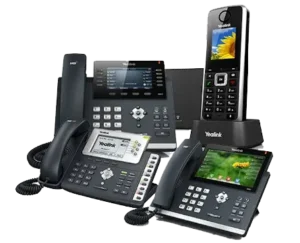Key Business Sectors in Freeport
1. Port and Logistics
At the heart of Freeport’s economic engine is the Port of Freeport, one of the fastest-growing deepwater ports in Texas. The port plays a critical role in international trade, serving industries such as:
- Oil & Gas Exports: Freeport is a major exporter of liquefied natural gas (LNG) and petroleum products.
- Container Shipping: The port supports containerized cargo and bulk goods, making it ideal for logistics companies.
- Automotive Imports: Companies use Freeport as a gateway for vehicle import and export operations.
With ongoing infrastructure improvements, including expansion projects for deeper berths and new terminals, the port continues to drive economic growth in the region.
2. Oil, Gas, and Petrochemicals
Freeport is home to several multinational energy companies and petrochemical plants, thanks to its proximity to Houston’s Energy Corridor and the Gulf’s vast oil reserves. Notable industry players include:
- Dow Chemical Company: One of the largest chemical manufacturing facilities in the world, producing a wide range of materials for industrial and consumer use.
- Freeport LNG: A massive LNG export terminal that enhances the city’s global energy trade footprint.
- BASF and Shintech: Major chemical manufacturers supplying global markets.
With its pipeline infrastructure, refineries, and production plants, Freeport remains a top location for companies in energy, refining, and chemical processing.
3. Manufacturing and Industrial Growth
Freeport has a strong manufacturing base, particularly in metal fabrication, shipbuilding, and industrial equipment production. The presence of the Freeport Industrial Park and economic development incentives has attracted both large-scale manufacturers and small businesses.
The city’s manufacturing sector benefits from:
- Access to raw materials via the port and rail networks.
- A skilled workforce with experience in engineering, welding, and machinery operation.
- Tax incentives and business-friendly regulations that encourage investment.
4. Commercial Fishing and Seafood Industry
Being a coastal city, Freeport has a significant fishing industry, supplying fresh seafood to both local and national markets. Businesses in this sector thrive due to:
- Proximity to the Gulf of Mexico, providing access to a diverse range of seafood products.
- Strong local demand from restaurants and retailers in the Houston metropolitan area.
- Processing and export facilities that cater to global seafood markets.
5. Tourism and Hospitality
Though primarily an industrial hub, Freeport has been growing as a tourism destination, particularly for:
- Fishing and boating charters.
- Beachfront resorts and recreational businesses.
- Eco-tourism and bird-watching opportunities.
Entrepreneurs in the hospitality sector can capitalize on the city’s coastal attractions and growing visitor numbers.
Why Freeport is Ideal for Business
✅ Strategic Location
- Near Houston, one of the largest business hubs in the U.S.
- Direct access to the Gulf of Mexico, facilitating international trade.
✅ Pro-Business Climate
- Economic incentives, including property tax abatements and business grants.
- Foreign Trade Zone (FTZ) status, reducing import/export costs.
✅ Infrastructure & Connectivity
- Port of Freeport, Union Pacific Railroad, and State Highway 288 connect businesses to national and international markets.
- Expansion of port facilities and industrial parks enhance growth opportunities.
✅ Skilled Workforce
- Trained labor in petrochemicals, logistics, and manufacturing.
- Partnerships with local colleges and vocational training programs.

 ✅ Save Up to 1/3 on Your Business Phone Costs – Lower your monthly bills while improving service.
✅ Save Up to 1/3 on Your Business Phone Costs – Lower your monthly bills while improving service.